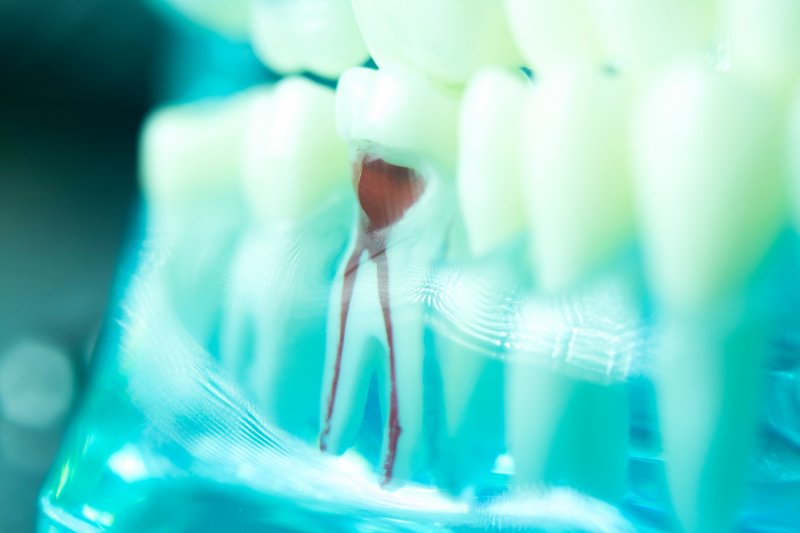
While you’ve probably seen root canals humorously portrayed as dreadful ordeals on television and in movies, the truth is that these procedures are completely painless and involve only a brief and mild recovery period. A root canal treatment can eliminate a dental infection at its source, save a tooth from being extracted, and bring an immediate end to an agonizing toothache. Here’s a brief overview of what it’s like to recover from a root canal as well as a few tips for keeping yourself comfortable while your tooth is healing.
How Are Root Canals Performed?
Your dentist will only recommend a root canal if it is absolutely necessary to prevent tooth loss and preserve the rest of your oral and overall health. The procedure begins with them administering a suitable local anesthetic to ensure that you can sit comfortably, and you may also receive sedation treatments if you need extra help remaining calm. Then, your dentist will access the inner chamber of the tooth, remove the infected pulp and any other decayed matter, and sterilize, fill, and seal the interior of the tooth. You will probably be scheduled to receive a dental crown for protection later.
What Can I Expect While Recovering from a Root Canal?
Most patients report that their teeth feel slightly sensitive or tender for several days after receiving a root canal, which makes this period much more pleasant than continuing to suffer with a miserable toothache. While this discomfort should diminish and disappear within a week, contact your dentist if it persists or worsens, as this can be a sign of continuing infection.
How Can I Stay Comfortable While Recovering from a Root Canal?
Immediately after receiving a root canal, refrain from drinking anything hot and chewing in general until the anesthetic treatment has worn off, as it can be too easy to burn, bite, or otherwise injure the surgical area while it is still numb. While recovering, take any prescribed or recommended medications as instructed, and it’s best to stick to a softer diet and avoid chewing with the treated tooth until you can resume your normal eating habits comfortably. Be careful when brushing the tooth to avoid irritating the healing tissues.
A root canal is often the best way to end a toothache without extracting the tooth. By complying with your dentist’s postoperative instructions, you can minimize any discomfort during recovery and get back to smiling and eating normally sooner.
About the Practice
Nu Dental Eatontown offers the finest oral healthcare available in the area. With Drs. Admasu Gizachew, Monica Andrews, and Michael Habib at the helm, the staff is dedicated to providing patients with effective treatments and utmost courtesy. Areas of expertise include general, restorative, cosmetic, and emergency dentistry as well as root canal treatments. To learn more about root canal aftercare, contact the office online or dial (732) 863-3899.
